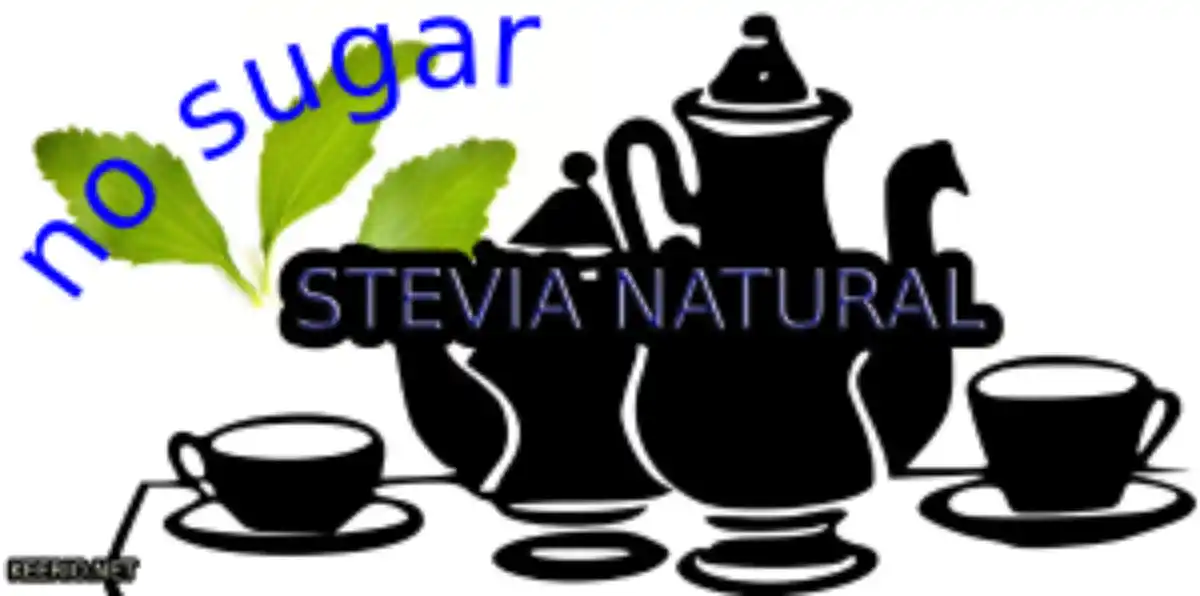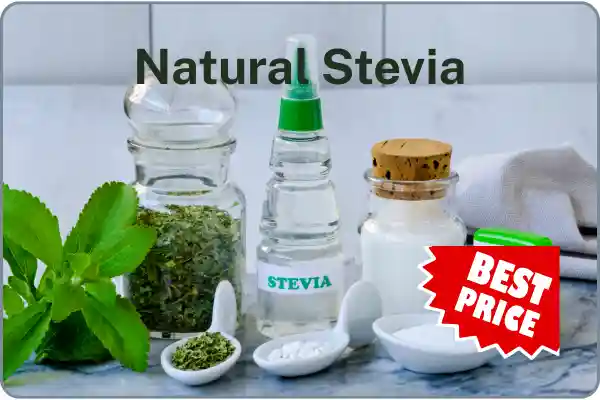Stevia
Stevia the sugar alternative
This sugar substitute has gained popularity in recent years as a zero calorie sugar substitute that is sweeter than sugar and has a low Sugar substitute is also safe for consumption and doesn’t have any adverse effects on teeth or overall health. In addition, it has been found to have antioxidant properties, which may help protect the body against free radicals and oxidative stress.
On the other hand, sugar is a natural sweetener derived from sugarcane or sugar beets. While sugar is a source of energy, excessive consumption can lead to a host of health problems, including obesity, diabetes, and heart disease.
Sugar also has a high glycemic index, which means it can cause a rapid rise in blood sugar levels, leading to a crash later on.
Overall, this plant based sweetener is a better alternative to sugar for people who are looking for a natural, calorie zero sweetener. However, it is important to note that this sugar substitute is not a magic bullet for health, and excessive consumption of any sweetener can have negative health effects.
It is always best to consume sweeteners in moderation and as part of a balanced diet and lifestyle.
Usage in Tea making
Tea can be made healthier by using it instead of sugar. it can be used as a sweetener in tea. It is a popular alternative to sugar or artificial sweeteners for those who want to reduce their sugar intake or avoid artificial ingredients.
This natural sweetener comes in various forms, including liquid drops, powder, and packets, so it can be easily added to tea to provide sweetness without calories. It is important to note that it is much sweeter than sugar, so it is best to start with a small amount and adjust according to taste.
Availability in Pakistan
This sugar substitute is available in the market or online stores as a sweetener, and can be used to sweeten tea as well. You can find its products in various forms such as liquid drops, powder, and tablets. Some popular brands of stevia sweeteners that you can find in the market include Stevia in the Raw, Truvia, Pure Via, and SweetLeaf.
To use it as a sweetener for tea, you can add a few drops of liquid stevia or a pinch of stevia powder to your tea. Keep in mind that stevia is much sweeter than sugar, so you will need to use a smaller amount of stevia to achieve the same level of sweetness.
It is important to note that while it is a natural sweetener and is generally considered safe for consumption, it is still important to use it in moderation.
Like any other sweetener, excessive consumption of plant based sweetener can have negative effects on health. Some hypersensitive individual may experience minor and rare side effects like,
1.Gastrointestinal discomfort: Some people may experience gastrointestinal discomfort, such as bloating, gas, nausea, or diarrhea, when consuming it.
2.Allergic reaction: Although rare, some people may be allergic to stevia and may experience allergic reactions, such as itching, swelling, or difficulty breathing.
3.Low blood pressure: Stevia has been known to lower blood pressure, which could be problematic for people who already have low blood pressure.
4.Hormonal effects: Some studies suggest that high doses of stevia may have hormonal effects, such as lowering testosterone levels or affecting the menstrual cycle.
5.Metallic aftertaste: It has a natural sweetness, but some people may experience a metallic aftertaste when consuming it.
In conclusion ,although its safe for consumption , yet can not be used excesseively Its very important for diabetes patient who cannot take tea without sugar .These individuals may use this in limited quantity and should consult healthcare proffesional in case of certain complications or side effects
It’s better to use a low-GI sweetener or monk fruit in your daily tea. These sweeteners won’t cause rapid blood sugar spikes, making them a healthier option, especially for those managing diabetes or looking to maintain stable blood sugar levels.


